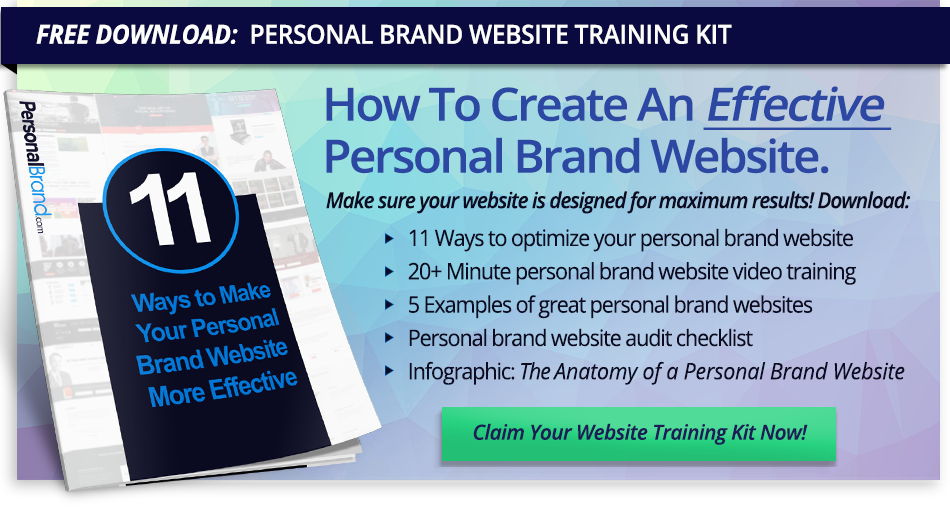Part II: Eight Tips for Hosts
To build a personal brand, you must be authentic, inspiring, likable, and credible. Don’t let this attribute list scare you. If you’ve developed expertise in a specific topic or industry category, people want to hear from you. Gaining knowledge is the hard part. Being authentic and credible is the easy part. Interview marketing can help.
I founded Interview Valet to help connect influencers with insiders, and help people turn listeners into leads. Our podcast interview marketing platform helps individuals grow their personal brands by connecting them with established and popular podcast shows on which they can showcase their knowledge and expertise.
You can learn more about how to leverage interview marketing as a podcast guest from my recent blog on personalbrand.com. In this article, I’m going more in-depth to help those who want to leverage podcast hosting as a technique to amplify their personal brands further.
The Value of Podcast Interview Marketing for Hosts
As a podcast guest, you have a valuable opportunity to share your message and your knowledge with networks of established listeners looking for insights and advice from the industry’s best and most knowledgeable sources. The guest circuit side of interview marketing can be extremely valuable for someone looking to establish their personal brand or build awareness.
The host side of interview marketing, on the other hand, can further establish you and your brand as an industry expert while amplifying your credibility.
After all, it’s hard not to argue that someone who can fill up 30 to 40 minutes of airtime every week with their expert musings is a knowledgeable source of information.
If you already have a network of followers, can barely sleep at night due to all the ideas you have in your mind for tips and tricks to share, and love the idea of creating content that is more engaging and dynamic than the average blog, then you’re an ideal candidate for hosting a podcast and leveraging our best interview marketing techniques. Here are eight podcast host tips to help you get started.
These best practices are the result of our over five years helping brands such as HubSpot and Lockheed Martin, and industry experts such as Pete Vargas and Jennifer Allwood build credibility through interview marketing.
1. Mix Up Your Format
Your audience wants to hear from you—a credible and authentic source of information and advice—but there is also equal value in sharing with your listeners insights from other experts in your industry and related fields.
The most successful podcasters produce a mix of both interview-style content with dialogue with guests, and content in which they monologue, sharing their thoughts and experiences.
Another reason why it’s critical to produce a mix of content formats is that if all you do is interview, you may set yourself up to be seen as a professional interviewer and not as an expert, especially if you are still developing your audience of followers. On the flip side, if all you do is monologue and teach, then you’ll lose the potential to tap into other networks, build professional relationships, and cross-pollinate messages and offerings.
2. Over-Prepare
As I mentioned in my previous blog about podcasting for guests, never go on air with a guest without doing your research and being prepared. You wouldn’t give a formal presentation to an audience without preparing. To be a successful podcast host, you have to treat the digital stage the same way you would treat the physical stage.
Do your research about your guest. Know their name (seriously), their area of expertise, what they usually talk about in interviews and articles, hot topics associated with their niche, and anything about their brand or business that they are currently promoting.
By showing your guest the respect that they deserve and creating a comfortable, welcoming, and beneficial interview experience, you’ll increase your likelihood that they will revisit your show, and you’ll create the kind of host reputation that will encourage other industry leaders to speak with you on air too.
3. Identify Your Comfort Zone
Most hosts have a preference for whether they pre-record their podcasts, or air them live. You’ll need to decide what you like best, but know that while many podcasters live stream their shows over Facebook, the majority of listener engagement comes not from appointment listening of live shows, but from listening to the host’s evergreen content—their previously recorded, and most popular shows.
Also, consider the format of your podcasts. People often ask, “If I record a video, is it still a podcast?” It sure is. Consider Gary Vaynerchuck, who shares video podcasts on YouTube, Facebook, and iTunes and has millions of followers.
This point leads me to a bonus tip:
Repurpose your content any way you can by sharing it across multiple channels, also like Gary Vee.
4. Shoot the Moon
One of the first questions people ask me about hosting podcasts is how to find and book high-quality guests. Start by identifying and reaching out to your ideal customers. We recommend to podcast hosts that if they are going to produce shows once a week for a year, that they target their 52 ideal customers. Next, comes the ask.
After over five years of connecting podcast hosts with influential guests, I’ve learned a critical lesson. Always ask. Just ask. If you don’t ask your dream guest to appear on your podcast, they can’t say no. That being said, you have to frame your request. If you call a Fortune 500 company and leave a message that you want to interview the CEO, your request could be mistaken as a sales call, and it may be disregarded. If you specify that you are inviting the CEO to be a guest on your podcast, however, you’ll gain attention.
Next, be prepared when you extend the invitation to sell the value that your podcast will bring to the guest and their brand. Share information about your audience and your show’s reach. Also, be specific about the topics you hope to discuss. The topic you pitch could impact their willingness to fit you into their schedule.
When it comes to inviting guests on your show, also keep in mind that “No,” doesn’t always mean “No forever.”
The reason why someone may say no to your initial offer could be a conflict of timing. Better yet, time your offer when additional exposure could be advantageous for your guest. Reach out when you know he or she will be promoting a new book or a speaking engagement tour. They may be able to fit you into their schedule and may be excited about the chance for additional free marketing.
5. Be Accommodating
When it comes to scheduling industry-leading experts and influencers, accept that you will need to work around their schedule. Just like you, they are busy and their time is in-demand. Expect that if they are bigger than you, that you’ll need to be accommodating and flexible about scheduling.
6. Invest in the Right Equipment
To start hosting regular podcasts, you don’t need to convert your basement into a million-dollar sound-proof studio, but you do need equipment that will help you be taken seriously. Do not merely rely on your smartphone or laptop.
If you want to be seen as an expert, you need to be heard as an expert.
It will ruin your credibility to sound like you’re calling your guests from a bathroom. Spend some money on a decent microphone that will work with your computer and an Internet connection. For $70, you can get a quality product that will make sure you sound like a professional.
7. Follow Our Proven Best Practices to Grow Your Audience
Based on our experience facilitating over 10,000 different podcast interviews, we’ve been exposed to some smart promotion hacks and have seen their impact. We’ve designed a checklist for our clients to help them grow their audiences because we understand that learning from your own mistakes is painful. It’s better to learn from someone else’s’ mistakes and the positive lessons they learned as a result.
Out of our entire checklist, if I had to choose just one, it would be this: When you start podcasting, reflect on your goal. Ask yourself: “What do I hope to accomplish?” Just like everything you do to grow your personal brand, start with the end in mind and let it drive your strategic decisions.
8. Commit and Improve
Don’t start podcasting regularly unless you’re willing to commit to it for one year. I say this because perfectionists can easily be self-critical if they go on air live once or twice and feel like they bombed. When we start something new, we’re never great at it.
Podcasting is a skill that needs to be refined, just like anything else. It’s a process.
If you consider the biggest names in podcasting, I promise you’ll find that their worst interview was always the first one. However, if you don’t get the first one out there, you’ll never give yourself a chance to get better. Don’t overthink your first few sessions. People will understand that you are refining a new skill, and if you stick with it, it could have a significant impact on your personal brand development.
Final Thoughts
Podcast interview marketing can help you to turn listeners into leads, build valuable professional relationships, and build a broad audience of raving fans who see you as the credible thought leader that you are. With some practice and planning, interview marketing can quickly become one of the most impactful aspects of your lead generation and personal brand building strategy. And one of the most rewarding and fun.
We hope you enjoyed this article, thanks for reading! Also, follow us on Facebook, and Twitter for updates every time we publish!






